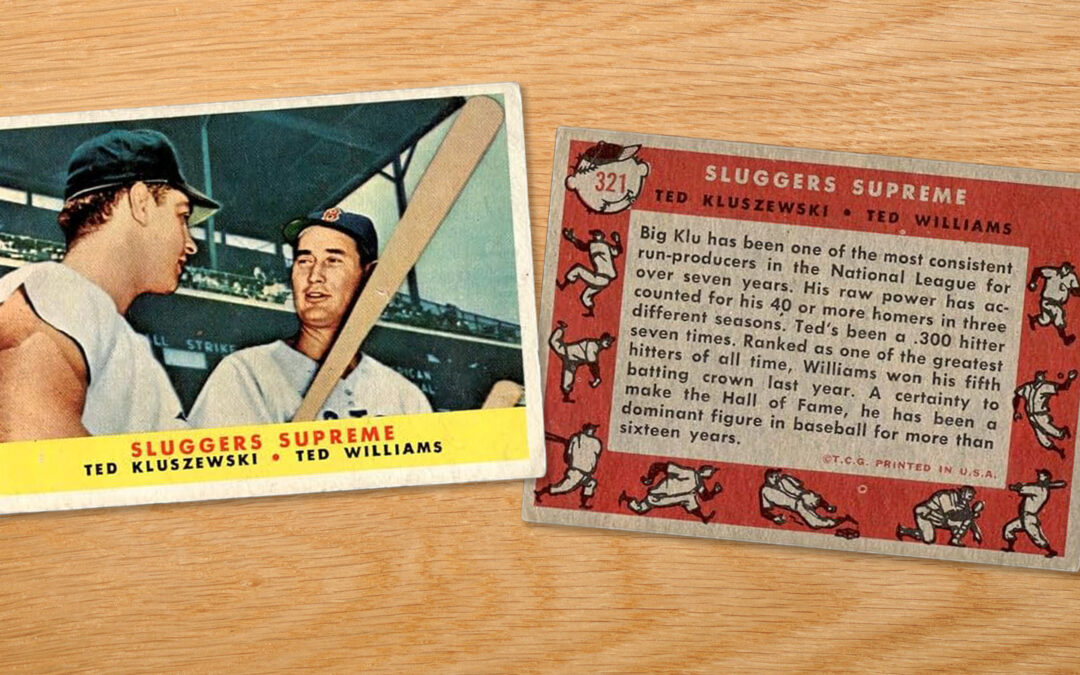
by Robert Bowie, Jr. | May 27, 2025 | Featured, Humor, Personal
Have you been following the economics of this country recently?
Guess who was invited to President Trump’s private event for customers of his cryptocurrency business on Thursday and given a White House tour on Friday?
I wasn’t!
I called my friends, Peter, Belinda and Liza, to see if they had been part of this same oversight by the President.
Peter, Belinda and Liza and I were neighbors during our middle school years and have been friends ever since for over 60 years, and all of us were there from the beginning of cryptocurrency.
They weren’t invited either!
We concluded that this oversight by the President was not his fault and was due to only one possible interpretation.
Our President does not know a lot of American history or, to be a little more polite, he has not yet become aware of the true history of cryptocurrency.
As the rest of us already know, cryptocurrency was quietly created after Nixon took the country off the gold standard. Quite conveniently, it was the same time the first Topps baseball cards were issued in five-card packs with a card size slab of bubblegum included.
The retail cost was five cents per pack. A penny for each card and the bubblegum was free — age appropriate pre-pubescent genius marketing.
A half century before cryptocurrency entered the world stock market, Peter and I were both early investors in baseball cards, and then found another lucrative market in marble monopolies. We were early traders in pre-crypto middle school cards and marbles during recess.
Peter cornered the marble market so effectively that the marble market collapsed after he won all the marbles.
I tried to make a run on “big marbles” so I dressed up my little middle school self and went to pawn shops and antique stores looking for clear round door knobs.
Regrettably, no door knobs are completely round and thus valueless in the larger marble markets.
As a result — for the good of the market — Peter gave a written announcement handed out to the neighborhood that he would be emptying several boxes of marbles to the neighborhood market for free one late spring Saturday afternoon. It happened out of a second floor window with the driveway below. It was an early example of flooding the market.
Peter emptied five bankers boxes of multi currency marbles, including “puresy boulders” and several stunning “jumbo spirals.” The market was saved and Peter had made recess fun again.
Baseball cards back then were “to die for,” particularly if you had a complete set. Peter had a complete set of baseball cards for the years 1957, 1958, and 1959.
Even in middle school, you knew these people were serious people! Peter was a born collector and became a well known New York art dealer. Liza became a respected museum curator in Washington DC, and Belinda became a brilliant art writer and critic.
In the alternative, when I went off to college, my mother emptied my closets and threw away all of my marbles and baseball cards… and I became a lawyer.
At the same time as Trump’s cryptocurrency banquet and tour of the White House, his administration announced that they would be retiring the penny because it was not cost-effective to produce it anymore. They had determined that it took four cents to produce a penny. Think about the appreciated value of just one card, bought for a penny. Or even better, a complete set.
Ever since Nixon took us off the gold standard, our currency, stocks and bonds, like cryptocurrency, have no value other than the theoretical value according to the market.
However, with marbles and baseball cards, unlike cryptocurrency, there is the added component of artistic beauty. They are self valuing and hold a valuable historical record on the flip side of the picture — batting average and stolen bases and other stats.
Also, the bubble gum is great for the dental economy.
Hold onto your baseball cards and don’t lose your marbles!
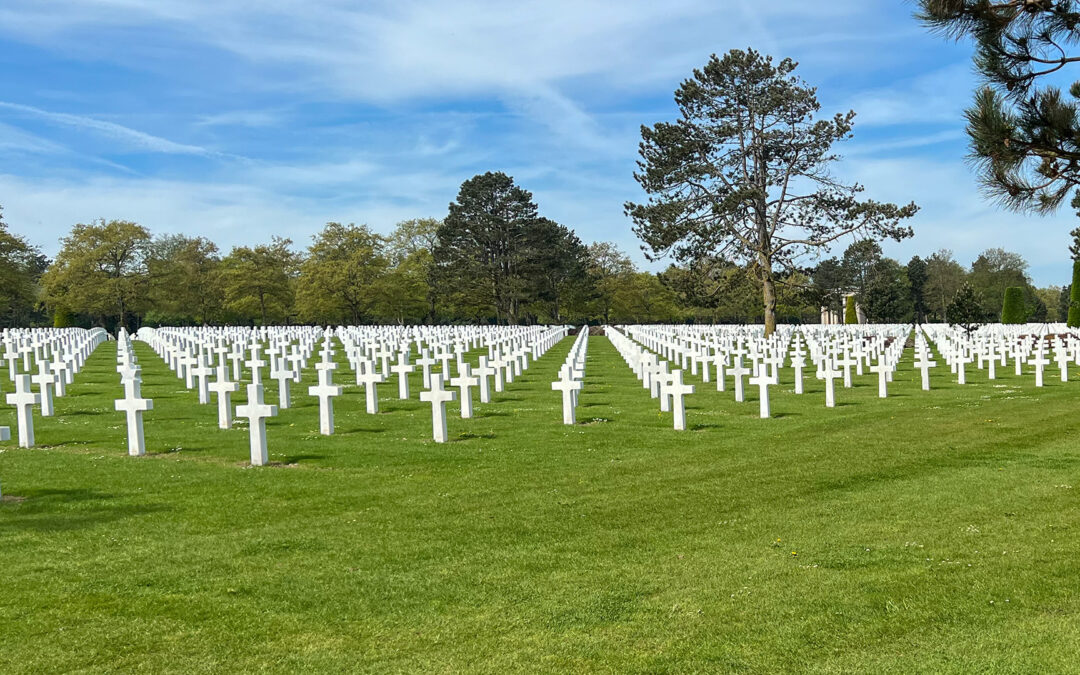
by Robert Bowie, Jr. | May 20, 2025 | Featured, Personal, Travel
When Susan and I flew to Paris again this year for three weeks this spring, I had planned to watch the Bob Dylan movie, “A Complete Unknown” on the flight that night, but I was too tired so I slept instead.
Paris was warming to its spring as we landed at Charles De Gaul airport and traveled into the heart of Paris to a beautiful flat with its view of the Seine from its fifth floor living room and bedroom windows on the Île Saint-Louis.
The six hour difference in the time between the East Coast of the United States and Paris delayed the news reports that poured into my cell phone at three in the afternoon Paris time as America woke up and went to work.
The distance and the time change diminished my obsession to keep up with America’s politics, but nothing could uncouple it from my daily concerns.
Over our three weeks, Susan and I committed to walk the city, but for longer trips to Montmartre or the outskirts of Paris to the Louis Vuitton Museum to see the huge new David Hockney exhibit, we took the Metro.
Each evening, we would go to one of the little restaurants on Île Saint-Louis and then climb the stairs or take the little elevator to the flat to read the news before bed.
Last year. we had taken three days off from Paris to go to the LaVar Valley to stay in a beautiful Château and visit the region’s medieval history. This year, we went to Normandy and, as I observed the beaches and cliffs, and finally the dramatic American cemetery, the pride I’ve always felt for America rekindled with my respect.
On the morning that we flew back in mid May, Paris was in full bloom as we got on the plane to fly into the upcoming day on our return to the United States.
I again committed to watch the Bob Dylan movie on our way home.
Even though it had been out for some time, I still had not seen it, but I knew enough from the reviews that it was about the transition from Dylan’s early folk years to the electric folk rock that Dylan made in 1965.
In the fall of 1965, I had started my first year at the Cambridge School of Weston, a progressive high school that knew something about learning disorders and thus was unlike the boarding schools and summer schools I had attended previously.
It was my second try at 11th grade. My new school was so very different in so many ways, but as my classmates wore sandals and blue jeans and played guitars out on the quad or went off to the ceramic studio and the wide range of classes offered, I attended my classes in a sport jacket, but eventually gave up on the tie.
I believed I was in transition to a better place and I believed that from the start. I was hoping that repeating the 11th grade would rekindle my love of learning in a new environment with a fresh start.
Within weeks of my first day, a sign-up sheet went up in the dining room, which offered tickets and a bus ride provided by the school to see Bob Dylan play in a Boston theater.
I signed up with about 15 of my fellow students and we got on a little bus to go down to the theater.
When we got to the venue in downtown Boston, we were told that it had been sold out almost immediately and, though we had paid for our tickets, no seats had been assigned for us.
The theater instantly took action and placed folding chairs in a semicircle on stage directly behind Bob Dylan.
The first half of the performance was all Bob Dylan singing his folk songs in front of an adoring audience with us directly behind him.
When the audience returned to their seats for the second half of the program, however, a rock ’n’ roll band was now set up to back up Dylan. We pushed our seats back further to accommodate the instruments and cables.
When Dylan entered, he was met with catcalls. I could not believe what was happening in front of me. I sat, self-conscious and a little bit frightened, as Dylan faced the catcalling audience.
Dylan played the first few songs with the electrical back up in the midst of the continuing catcalls.
Somewhere in the middle of one of those songs, a very loud voice broke through and yelled something like, “You sold out!”
Dylan stopped the performance. After a very awkward moment, the silence was broken by Dylan’s voice over the microphone:
“I don’t believe you!” he said, and there was a smattering of applause as he signaled to start the song again, resuming the concert.
As the movie portrayed the transition at the Newport Folk Festival from folk to folk rock, Dylan spoke those same lines to that hostile audience and I returned momentarily to being a teenager on the back of that stage. But I was proud to be there rather than surprised and frightened by the event.
As we landed at Dulles Airport in Washington DC, and returned to our political world, I felt reborn and re-nourished by the experience.
I had this very odd feeling that these juxtapositions had reawakened me to the messy but resilient democracy in which I have been fortunate to have lived and prospered.
Somehow, America, through its history, has been endlessly capable of being reborn, newly appreciative of what the Declaration of Independence and the Constitution have provided for each generation.
Shortly thereafter, I laughed when the news reported that Harvard University had discovered in its archives an original copy of the Magna Carta, which had been presumed to be a copy, purchased in England for less than $30 after the Second World War. It turned out to be the thing itself.
It was a great trip to Paris, which taught me yet again how much I love this country.
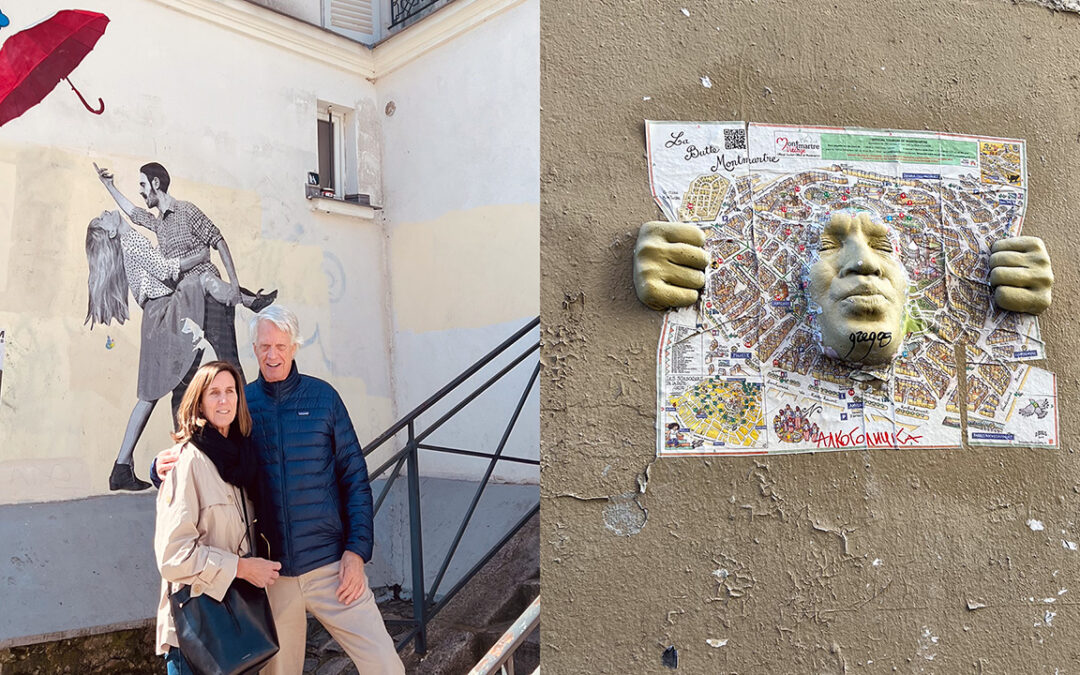
by Robert Bowie, Jr. | Apr 16, 2025 | Featured, Humor, Personal, Politics, Travel
I’m not really worried about Trump taking over Harvard, so Susan and I are going to Paris this Saturday for a couple of weeks.
Why is everybody so upset? It seems like all the commentators have completely overlooked Trump’s leadership skills when he ran Trump University.
Trump has been very vocal about his business acumen and, by his own account, he ran the university brilliantly for the five years before its bankruptcy.
There was some unsubstantiated criticism about gold toilet seats, but he claimed he was always very hands-on and was good at keeping the overhead low.
For example, despite its name, Trump University was never an accredited university or college. It did not confer college credit, grant degrees, or grade its students.
Think about the savings on the cost of paper.
In contrast, the data from the 2023–24 academic year, 72% of Harvard University’s first-time, full-time undergraduates received financial aid. In the alternative, Trump University was apparently so popular, it never needed to offer scholarships. And Trump has already said that he wants to get rid of Harvard’s nonprofit status.
Really! So where is the art of the deal?
Harvard is not effectively selling its product! No. Harvard has been giving it away for free.
What is also great is that Trump has the experience to navigate these litigious times. In 2011, Trump University became the subject of an inquiry by the New York Attorney General’s office for illegal business practices, which resulted in a lawsuit filed in August, 2013. It was also the subject of two class actions in federal court. The lawsuits centered on allegations that Trump University defrauded its students by using misleading marketing practices and engaging in aggressive sales tactics.
Of course!
Everyone knows that Trump is a marketing genius! Okay, let’s get down to what Trump‘s real motives may be.
Both schools have one thing in common.
Neither school has a mascot.
Everybody knows that Trump is a master marketer. I think the hidden agenda will be that Trump will insist that Harvard finally adopt a formal mascot, befitting our country’s white Christian heritage: a Pilgrim, of course!
But even more importantly, this way he can get rid of that out of date logo “Veritas” and change it to “If you piss off a pilgrim, you’ll get yourself a witch trial.” Then he can raise money at halftime with a raffle where the winner gets whisked away for a lifetime in El Salvador.
Anyway, just like last year, Susan and I will be sending back Parisian commentary and pictures to celebrate our spring time and hopefully brighten yours. À bientôt!
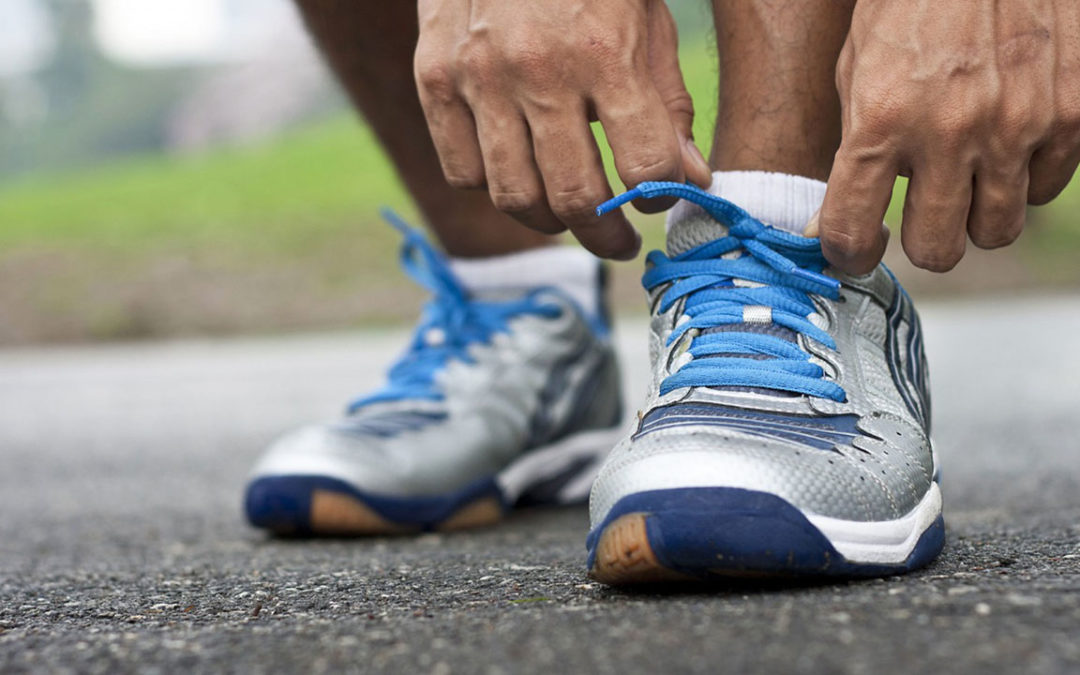
by Robert Bowie, Jr. | Mar 25, 2025 | Featured, Humor, Poetry
If you’re like me, the best memory you ever have had is an act of self-deception that you can’t remember. However, if you happen to stop forgetting for only a fraction of second it will be abrupt recollection.
It is like if you have ever accidentally slammed a door in your own face. It’s not easy to do, but you’ll remember it if you succeed.
On the first day of spring this year, I had one of those abrupt remembrances.
My New Year’s resolution this year is to get into better physical shape this spring. Unconsciously, of course, I have been getting less and less inclined the closer I get to springtime when I must start fulfilling my commitment to myself.
The truth is this New Year’s resolution has been the same New Year’s resolution I have made each year for over 20 years, but each previous spring I had successfully forgotten that years’s resolution.
Then I stumbled upon one of the sonnets in the book I wrote more than 20 years ago, entitled “Marathon Man.”
This year the door slammed in my face. Coincidentally, it occurred on the first day of spring last week, at a doctor’s appointment when I was told I must start exercising. I had forgotten that over 20 years ago I wrote “Marathon Man.” which made it much worse.
It starts:
The Marathon Man
“In a world of educated guesses
About one’s loves, integrity and health,
It is my custom to keep promises,
Even if they are only to myself.”
This is the perfect example of delusions of grandeur, which I had pleasantly forgotten into a magnificent memory of never committing to exercise, which is regrettably false.
As early as I can remember, I have consistently joked that I was so lazy I played goalie in all sports to avoid running laps. (The coach always shoots on the goalie while the rest of the team runs laps.)
But in my defense, technically being a goalie is not about the commitment to never exercise. It is a commitment not to exercise that I practiced religiously. I never committed to exercise. That’s entirely different.
Nonetheless, I’m highly competitive.
My memory is that I have saved myself from exercise to avoid injury so I will be ready for the senior Olympics when some doctor finally tells me I must exercise.
I have been told this before over 20 years ago when I was the marathon man but still as lazy and competitive as always.
Back then, I challenged a friend who is a very good runner to a 10 K race, but I got a 10-minute reduction of my time as a handicap to even the odds. For about three weeks before the race, I committed to run a mile around the high school track and, as a further commitment, I would eat four raw eggs poured out of a blender because I had seen “Rocky” the movie and Rocky did that.
It didn’t go well, which led to the delusion of grandeur in the form of a marathon. As is indicated in the third stanza:
“I trained on a treadmill, March to July.
Got my first runner’s high at 55.
Depleted my life‘s endorphin supply,
and blew out both knees and begged to die.“
So this time the doctor prescribed a certain number of steps as a target for each day. The doctor reminded me hopefully that it would also get me outdoors and into sunlight neither of which happened.
At the end of every day around midnight, before bed, I would find myself doing endless laps around the dining room table to meet my minimum requirement of steps.
Covid helped me along. My wife, who exercises regularly, proudly told me one evening her total steps and asked me about mine. I had decided to take the day off, so I happily worked and read pretty much all day. My total step count was around 50. Which probably is two trips to the bathroom and one to the kitchen.
Then I ran into this damn poem and I don’t feel good about getting ready for the senior Olympics. I feel my lethargy has not sufficiently ripened.
The sonnet ended with this final couplet:
“Oh yes, but the hell with all this fun;
Next year, for sure, I’ll be ready to run.”
— “An Accidental Diary: A Sonnet a Week for a Year” by Robert Bowie, Jr.
https://a.co/eg2uDCx
That was 20 years ago. No escaping it now. The door slammed in my face.
I guess I better go try to find my shoes.
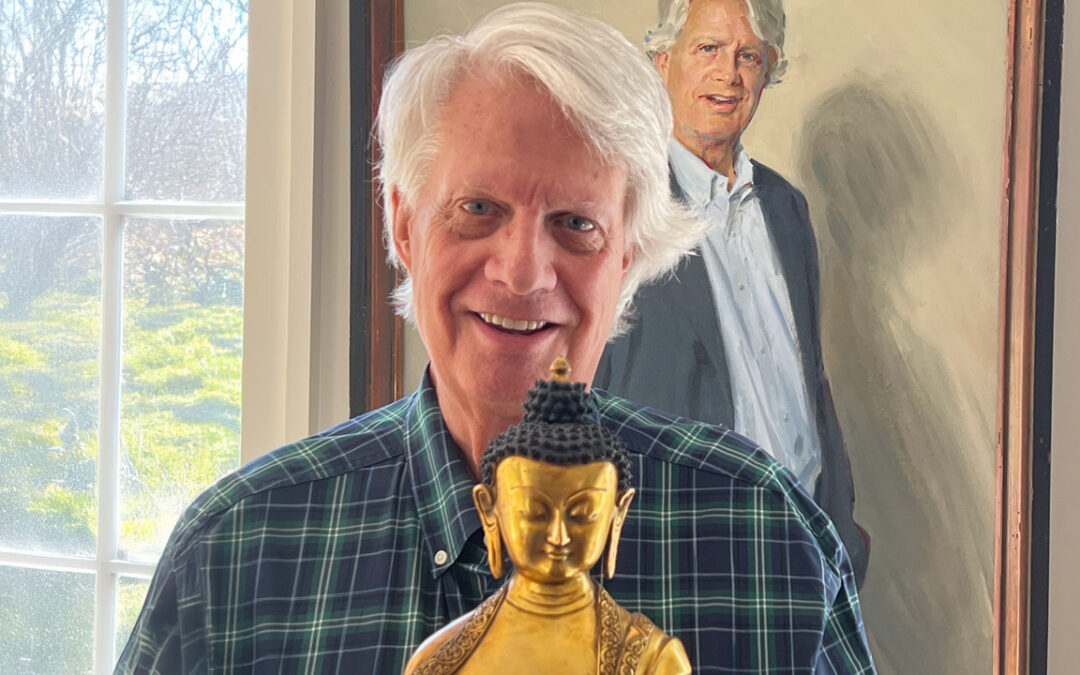
by Robert Bowie, Jr. | Mar 18, 2025 | Featured, Humor, Personal, Travel
In Buddhism, there are instances of instant enlightenment brought by shock or surprise.
(I feel it is okay for me to comment on Buddhism and its wisdom as long as I admit to you that I know nothing about it.)
Nonetheless, I offer an example:
There are instances where a monk will slap a student of Buddhism to surprise them or shock them into enlightenment.
I have always worried about this experience of receiving shock and resultant enlightenment ever since I may have accidentally shocked some Buddhists out of their enlightenment.
It all occurred in the second floor men’s room of The Charles Hotel in Cambridge, Massachusetts.
Many years ago, I took a morning plane to Boston dressed travel casual, with my blue suit, white shirt, tie, black socks and black lace-up shoes in my suitcase. I was to attend important meetings that afternoon in Cambridge.
When I got to The Charles Hotel in the early afternoon, I was informed my room was not ready. I had nowhere to change into my suit.
I was told the delay was because the Dalai Lama and his large entourage were staying at the hotel. The Dalai Lama was there to plant a tree in Harvard Yard with the Harvard president and then scheduled to go off to Foxborough to give a message to the masses in the football stadium. Apparently, the hotel was behind schedule because of these new guests.
Since I couldn’t get into my room, my only alternative was to go to the second floor men’s room of The Charles Hotel with my suitcase and haul it into the handicap stall of the public men’s room, where I would have enough room to change.
I put the suitcase on the toilet seat and began to disrobe and change into my business attire.
I hung my suit on the back of the stall door, unpacked my black shoes and pulled out my dark socks, and was starting to put on the white shirt when I heard the unexpected sound of chattering female voices exploding into the men’s room.
There seemed to be a great urgency and effort to bring in two people who were in wheelchairs. One, a very old woman and the other, a very old man. These voices were not in English.
I stood there, stunned with my suit pants in one hand and a black sock in the other and stood listening. It sounded like a kitchen in a busy restaurant.
I tried to peek through the crack in the door, but only saw a flurry of female activity. All I could make out was at least one person, perhaps more, had an urgent need to go to the bathroom.
I waited patiently with my sock and my pants, but nobody was leaving. It was as if everybody, male or female, had to urgently go to the bathroom.
I waited for nearly 10 minutes, but I was late for my meetings, so I had to make a decision about what to do.
I quickly dressed and repacked my suitcase. I decided to open the door and just march straight through this mob of people.
Given the circumstances, this was a very rude thing for me to do, but given the fact that I was in a men’s room, I felt entitled.
With my suitcase in one hand, I pushed open the door and confronted the group.
Instantly, there was stunned silence and, as if my mind were a flash camera, I had a mental picture of as many as 20 colorfully-dressed people staring at me with their mouths open.
There were people staring as they stopped washing their hands. There were people staring as they stopped midway through entering or exiting a stall. Everything was frozen.
Then there was a collective gasp. Not a shriek or anything, just a gasp. I tried to pretend I was invisible as I barreled toward the exit with a sea of bright colors parting on both sides.
I may have caused significant damage. Or, possibly, I shocked some of the entourage into a different vision of enlightenment.
First, it was clearly an emergency of some sort. Somebody had to really go to the bathroom badly and I fear it was an old person.
Second, these were elderly people in wheelchairs and I am not handicapped but I was in a handicap bathroom.
Third, and finally, I consider myself a very sensitive person but even if I had no empathy at all, one must consider reincarnation in all of this.
I offer no excuses. I think there may have been damage done to me, as well. I’m certain my karma is permanently shot. If there is reincarnation, I shudder to think what I will come back as.
So I’ve confessed it. I will also confess that I’m a believer in the “butterfly effect,” which is that every action causes a ripple across the universe.
If anything good comes from this, it is simply that I can warn you to be careful if you run into a similar situation.
You never know when a cosmic event will hit you.





